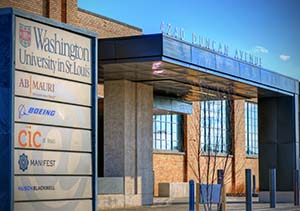
Washington University in St. Louis is launching the Quick Start License, a new tool that helps clear the path for faculty and staff to launch startup companies and accelerate the pace of bringing innovations to the marketplace.
“We have on our campuses creative, innovative minds coming up with ideas that can impact some of the world’s toughest problems,” said Provost Holden Thorp, PhD. “As a university, we must ensure our community has the support it needs to get the important knowledge and technologies created at the university into the hands of those who need it most.
“The Quick Start License is a direct response to our market and campus needs,” Thorp said. “Investors — and the broader innovation and entrepreneurship community —want improved access to our research and technologies. And we need to provide opportunities to make this happen.”
Quick Start details and community response
The goal of the Quick Start program is to simplify the licensing process through the university so faculty and staff can focus on the development and commercialization of products and on generating startup funding.
Unlike most technology license agreements, the Quick Start License will not require upfront payments, past patent costs, annual fees, milestone payments or minimum annual royalties.
“I’ve reviewed many technology license agreements over the years, and the Quick Start License is one of the friendliest I’ve seen for startup founders,” said Michael Powell, PhD, general partner with Sofinnova Ventures, a global venture capital firm with over 40 years of experience building life-science companies into market leaders.
“Quick Start allows Washington University innovators to focus on developing ideas and new businesses instead of worrying about upfront and milestone licensing fees,” Powell said, “Sofinnova would stand behind these terms as fair to both founders and investors.”
Dennis E. Hallahan, MD, the McDonnell Distinguished Professor and head of the Department of Radiation Oncology at Washington University School of Medicine in St. Louis, is one of the first users of the Quick Start License.
His new business, Medical Guidance Systems, is a biotechnology startup within the BioGenerator Laboratories at the Cortex Innovation Community that is developing antibodies to treat cancer.
“These antibodies will be studied in clinical trials in patients who have advanced cancers,” Hallahan said. “The Quick Start License process is perfectly suited to help faculty receive translational funding from the government, such as STTR and SBIR, for drug development.”
“The Office of Technology Management (OTM) developed the Quick Start License to help cut the time it typically takes to get a startup off the ground,” said Bradley Castanho, PhD, director and assistant vice chancellor of OTM.
“We’re excited to facilitate the formation of new ventures with the goal of making them attractive to potential investors and successful for the long term.”
Hallahan noted that the expedited technology licensing process is an important component of the improvements in innovation and entrepreneurship at the university.
“The greatest progress has been made in the mentoring program and the management conflict of interest,” Hallahan said. “It is now much less stressful, with fewer barriers for faculty to commercialize their inventions. These new processes will improve our competitiveness for funding for drug development and will also enhance the biotechnology community in St. Louis.”
Dennis Schafer, senior entrepreneur in residence at BioGenerator, an organization that facilitates the formation of life-science companies in the St. Louis area, said that the Quick Start License gives the university a competitive advantage in the tech transfer marketplace.
“Economists talk about ‘transaction costs’ — anything that makes it harder or more costly to start and finance companies around new technologies reduces innovation,” Schafer said. “The Quick Start License is a brilliant new approach that reduces the transaction costs of starting a new company around Washington University technology.”
For more information about the Quick Start License, contact OTM at 314-747-0920 or visit otm.wustl.edu.